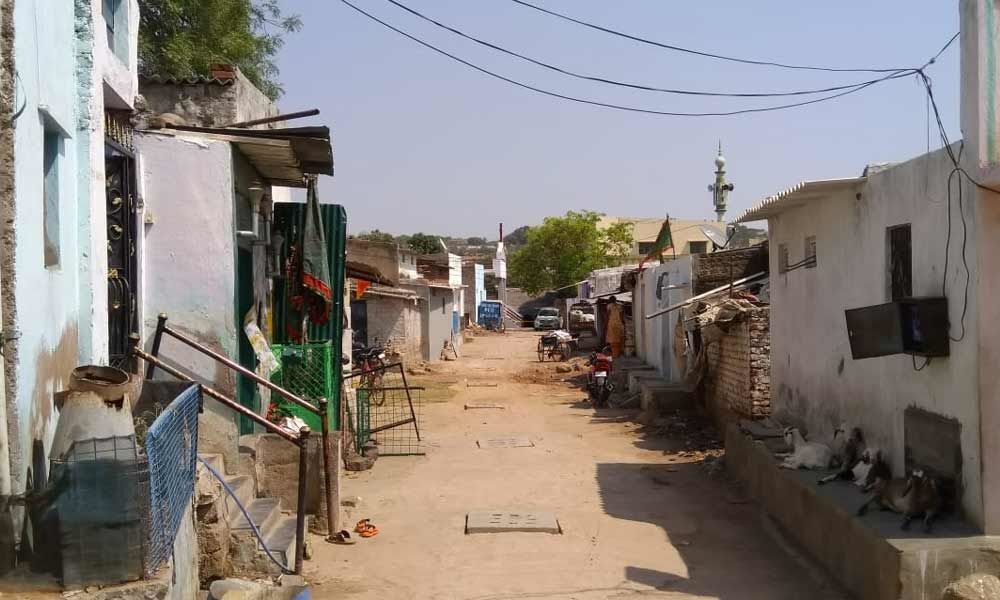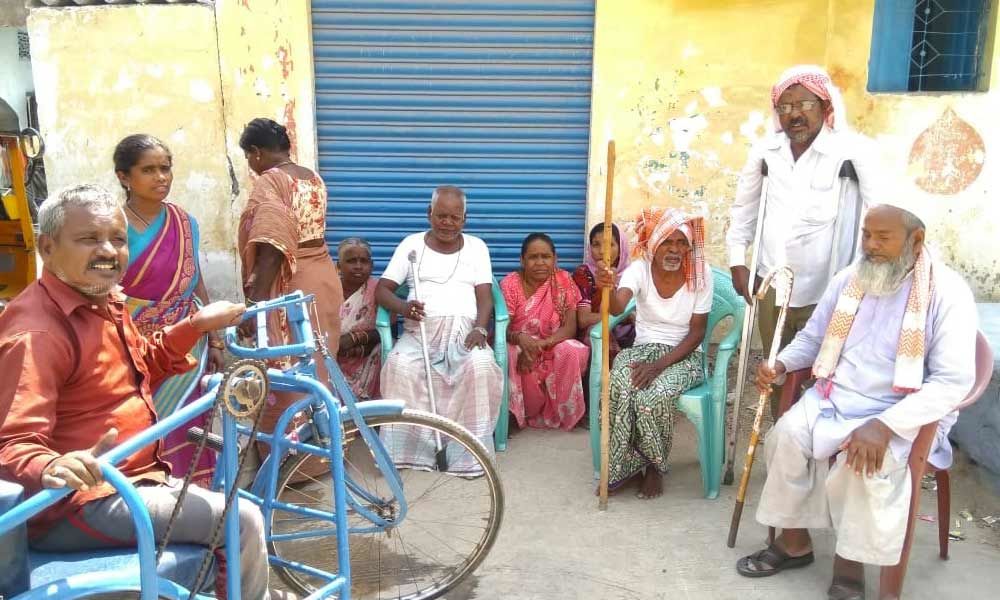Live
- PM Modi highlights govt's efforts to make Odisha prosperous and one of the fastest-growing states
- Hezbollah fires 200 rockets at northern, central Israel, injuring eight
- Allu Arjun's Family Appearance on Unstoppable with NBK Breaks Viewership Records
- Unity of hearts & minds essential for peace & progress, says J&K Lt Governor
- IPL 2025 Auction: I deserve Rs 18 cr price, says Chahal on being acquired by Punjab Kings
- EAM Jaishankar inaugurates new premises of Indian embassy in Rome
- Sailing vessel INSV Tarini embarks on second leg of expedition to New Zealand
- Over 15,000 people affected by rain-related disasters in Sri Lanka
- IPL 2025 Auction: RCB acquire Hazlewood for Rs 12.50 cr; Gujarat Titans bag Prasidh Krishna at Rs 9.5 crore
- Maharashtra result reflects the outcome of Congress' destructive politics: BJP's Shazia Ilmi
Just In
Falaknuma: Perhaps known this is the only colony in the city, where temple, mosque and church are located in the same lane within few meters of distance.
However, the 'Disabled Colony' is slowly losing its recognition due to non-provision of proper facilities by the successive governments.
Even as General Elections nears, where special emphasis is being given to increasing voting percentage of disabled, due to lack of provisions even after three decades, most of these specially abled have left for residences close to main roads and better connectivity.
Some three decades ago, a land parcel with more than 50 housing units was allotted by the government during the period of Telugu Desam government by NTR for the specially challenged people like blind, deaf, dumb, and those disabled with hands and legs.
After the disabled people started living there, the area was famously called as 'Andhe Langdho ki Basti,' which is located near Vattepally in Falaknuma.
When the locality came up there were about 80 families, but the number dwindled and most of them shifted to roadside and hardly some 30-40 per cent of beneficiaries now live in the locality.
Now, the Disabled Colony has slowly turned into a normal colony, as most of them left giving room to normal people in the colony.
"The colony is about 2 km from the main road, with no water facility, no roads and some months back there was no drainage pipeline.
Due to lack of facilities, the disabled left the colony and shifted to other areas, now there are hardly 40 per cent of them present," said A Buchamma, Basti leader.
When The Hans India reporter visited the colony, it gave an entirely different impression.
While entering the colony there one finds a temple, masjid and a church is located in the same lane.
One or two disabled were seen in every hut or a house.
People affiliated to different religions can be seen sharing the pain with each other and living in communal amity.
The masjid and temple were constructed with the donations and contributions of nearby area residents and the church was constructed with a donation by a lady from Mumbai.
Speaking to The Hans India Buchamma said, "This 'Andhe Langdho ki Basti' was a Bagh and named as Amjad Daula Bagh.
Later land was given to the disabled by government more than 30 years back.
More than housing units were allotted to people who were mostly beggars, small-time labourers, rag-pickers and low-income class people.
As the disabled started living in colony, the Amjad Daula Bagh's name changed to 'Andhe Langdho ki Basti'," she explained.
She also said that the government had been neglecting the area and there was not many facilities in the colony.
The government should take care of the disabled people and their colonies, she requested.
Some of the residents expressed grievances that following ban on roadside begging, most of the families are unable to support themselves.
"Now the begging is banned by the government. If such steps are taken and those who are caught are put in rehabilitation in jail, how would their families survive?" asks Chand Ramulu, who is disabled in legs.
He also said that due to his disability, he can't manage the expenses of house.
He has to send his small kids to earn money or to pick waste material on roads.
Unfortunately even his children are also disabled.
Narayana, a visually impaired, said, "Government is only providing pension of Rs 1500 and ration per month to the disabled.
This does not support the lives and family cannot survive with their daily expenses and children's schooling," he pointed out.
Due to bumpy and bad roads in area, he can't walk with a stick.
For survival, he has to leave for begging twice in a week with the help of his grandson who is also disabled with fingers, said Mohammed Ismail, a blind person.

© 2024 Hyderabad Media House Limited/The Hans India. All rights reserved. Powered by hocalwire.com









